大学英语泛读教程Unit7ppt
- 格式:ppt
- 大小:1.98 MB
- 文档页数:21


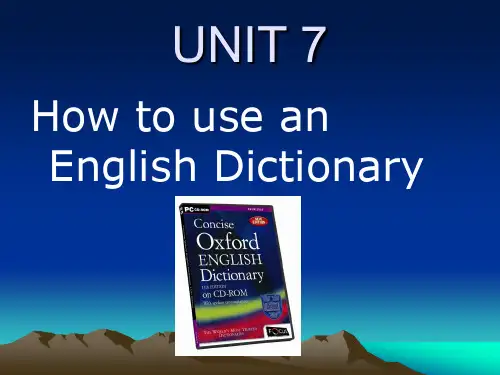
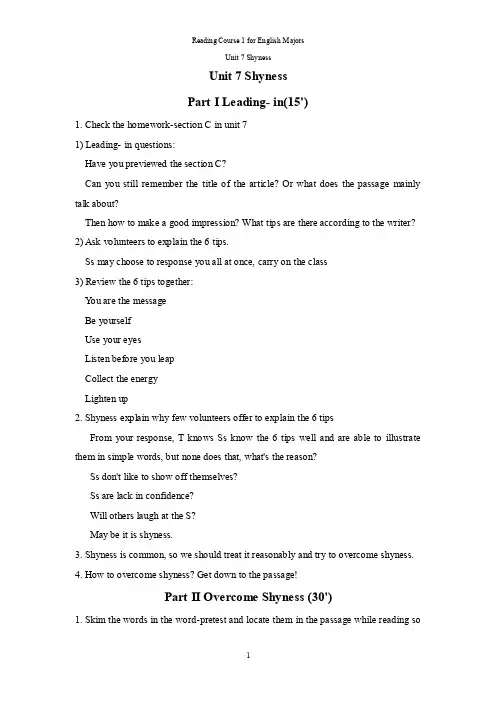
Unit 7 ShynessPart I Leading- in(15')1.Check the homework-section C in unit 71) Leading- in questions:Have you previewed the section C?Can you still remember the title of the article? Or what does the passage mainly talk about?Then how to make a good impression? What tips are there according to the writer?2) Ask volunteers to explain the 6 tips.Ss may choose to response you all at once, carry on the class3) Review the 6 tips together:Y ou are the messageBe yourselfUse your eyesListen before you leapCollect the energyLighten up2.Shyness explain why few volunteers offer to explain the 6 tipsFrom your response, T knows Ss know the 6 tips well and are able to illustrate them in simple words, but none does that, what's the reason?Ss don't like to show off themselves?Ss are lack in confidence?Will others laugh at the S?May be it is shyness.3.Shyness is common, so we should treat it reasonably and try to overcome shyness.4.How to overcome shyness? Get down to the passage!Part II Overcome Shyness (30')1.Skim the words in the word-pretest and locate them in the passage while reading soas to better understand their meaning.2.Read the passage and underline the part you don't understand.3.After reading, judge the statements in the exercises.4.Check Ss understanding. keys:FTFTFTTF5.Probable difficulties:1) Feeling ashamed will not do any good.Just to feel ashamed will not solve the problem, or is not useful.2) We are interesting in our own personal ways.We ourselves are interesting because of our unique personality or our unique ways to be ourselves.6. Useful words:excessively: do or behaviour too muchoverdoing: over- as a prefixoverestimate, oversleep, overhear, overcome7.Reading skill-class relationship, contrast relationship, synonym, antonym1) self-esteem is similar with self-worth2) compliment--praise3) detrimental-- harmful4) diminish is opposite to grow5) negative is opposite to positivePart III V ocabulary-building (20')1.Word-matchDo the exercise quickly, repeat what Ss make mistakes inIntroduce some relevant words or phrase.Intelligent --IQ intelligent qualityCommit- to do sth or make a promisecommit suicide2.AffixLet Ss speak the words they can think as many as possible and repeat their wordsExplain some words easily mistakenedengagement of sb to sb/ marry sbAgreement or disagreement in sentence 6?As for this part, the logic mistake appears, which is also an exam point in the ERROR CORRECTING of TEM 43.Look up the words in the glossary after class4.Do the cloze after classPart IV Fast- reading and Presenting1.Divide the class into 4 groups, and each group is assigned to read one passage in the SECTION B and then one S should stand up to be on behalf of his group and present the main ideas or information of the passage2.Give Ss time to prepare and inspire them to show his understandingPassage one:Fact:40% American are shy, even the president, the princess and the pop starA quarter of the people who are shy as adults were not shy when they were a childResult: Shyness may cause difficulties in communication with others even the best friendsPassage two:Reason: worry about making themselves foolWorry about making a mistakeWorry about how they are speakingCare too much about others' feeling of themselvesTips to overcome: speak in the front of mirrorPractice more to be mentally preparedWrite down the main points in case they skip out of your mindGive speech in front of your friendsAttitude: Everyone makes mistakes, treat your shyness reasonalblyPassage three:Reasons: 1. Inherit from parents2. Nobody tells us social skills3. It was thought that to be shy can get extra love and care when we were childrenShyness can be avoided: Force to do things you won't offer to doPraise those who are shyPassage four:Fact: all people blush, women blush more than men, young people blush more than old peopleReason: worried or nervousWhen others are better than themselves3.Add more explanation to make the rest of class if necessary.4.Check their understanding:Keys: FTT/ TF/ TFT /BCPart V AssignmentPreview the section C in Unit 8 and review what we've learnt in the class。
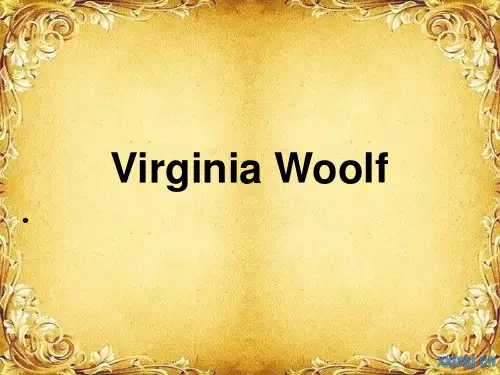
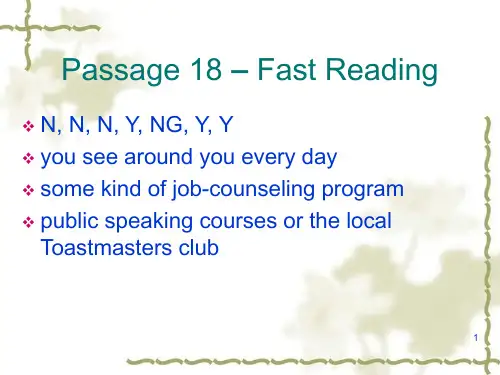


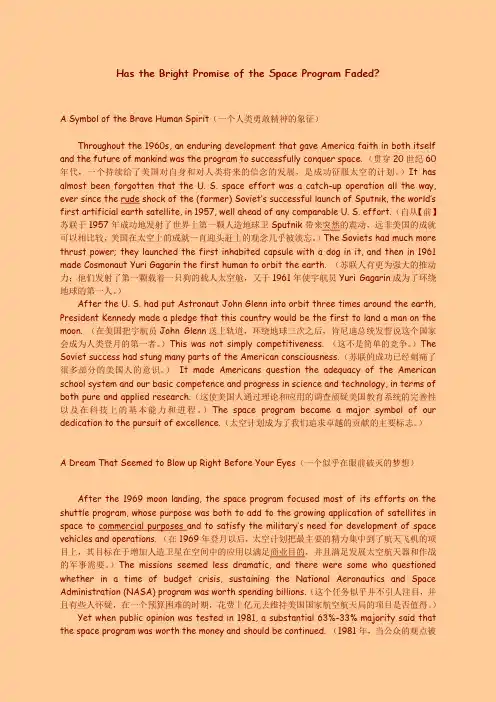
Has the Bright Promise of the Space Program Faded?A Symbol of the Brave Human Spirit(一个人类勇敢精神的象征)Throughout the 1960s, an enduring development that gave America faith in both itself and the future of mankind was the program to successfully conquer space. (贯穿20世纪60年代,一个持续给了美国对自身和对人类将来的信念的发展,是成功征服太空的计划。
)It has almost been forgotten that the U. S. space effort was a catch-up operation all the way, ever since the rude shock of the (former) Soviet’s successful launch of Sputnik, the world’s first artificial earth satellite, in 1957, well ahead of any comparable U. S. effort. (自从【前】苏联于1957年成功地发射了世界上第一颗人造地球卫Sputnik带来突然的震动,远非美国的成就可以相比较,美国在太空上的成就一直迎头赶上的观念几乎被淡忘。
)The Soviets had much more thrust power; they launched the first inhabited capsule with a dog in it, and then in 1961 made Cosmonaut Yuri Gagarin the first human to orbit the earth. (苏联人有更为强大的推动力;他们发射了第一颗载着一只狗的载人太空舱,又于1961年使宇航员Yuri Gagarin成为了环绕地球的第一人。
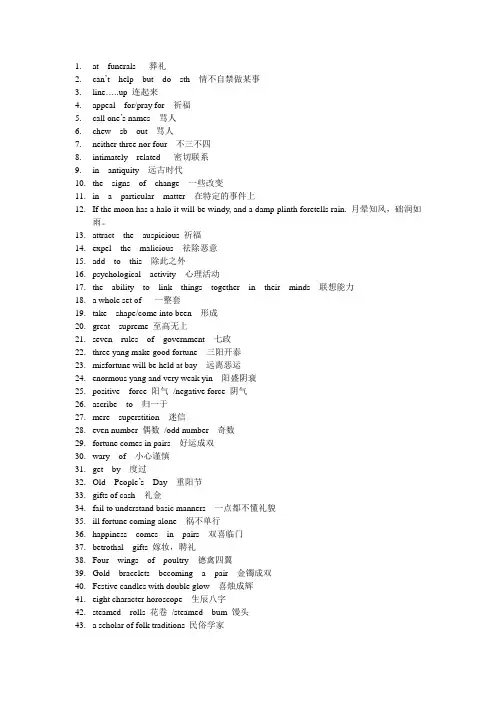
1.at funerals 葬礼2.can’t help but do sth 情不自禁做某事3.line…..up 连起来4.appeal for/pray for 祈福5.call one’s names 骂人6.chew sb out 骂人7.neither three nor four 不三不四8.intimately related 密切联系9.in antiquity 远古时代10.the signs of change 一些改变11.in a particular matter 在特定的事件上12.If the moon has a halo it will be windy, and a damp plinth foretells rain. 月晕知风,础润如雨。
13.attract the auspicious 祈福14.expel the malicious 祛除恶意15.add to this 除此之外16.psychological activity 心理活动17.the ability to link things together in their minds 联想能力18. a whole set of 一整套19.take shape/come into been 形成20.great supreme 至高无上21.seven rules of government 七政22.three yang make good fortune 三阳开泰23.misfortune will be held at bay 远离恶运24.enormous yang and very weak yin 阳盛阴衰25.positive force 阳气/negative force 阴气26.ascribe to 归一于27.mere superstition 迷信28.even number 偶数/odd number 奇数29.fortune comes in pairs 好运成双30.wary of 小心谨慎31.get by 度过32.Old People’s Day 重阳节33.gifts of cash 礼金34.fail to understand basic manners 一点都不懂礼貌35.ill fortune coming alone 祸不单行36.happiness comes in pairs 双喜临门37.betrothal gifts 嫁妆,聘礼38.Four wings of poultry 德禽四翼39.Gold bracelets becoming a pair 金镯成双40.Festive candles with double glow 喜烛成辉41.eight character horoscope 生辰八字42.steamed rolls 花卷/steamed bum 馒头43. a scholar of folk traditions 民俗学家44.three gave birth to ten thousand things 三生万物45.From nothing to something, or something to infinity 从有到无,从无到无限46.looked-upon 看得起47.Little good or bad significance 无好坏之分48.May the five fortunes approach your door 五福临门49.at festive occasions 喜庆场合50.an ethical life 伦理51.Confucianism 儒家思想52.the path of the golden 安乐死53.adopting the middle between two extremes 不偏不倚54.five pathways 五行之说55.fits with 符合。
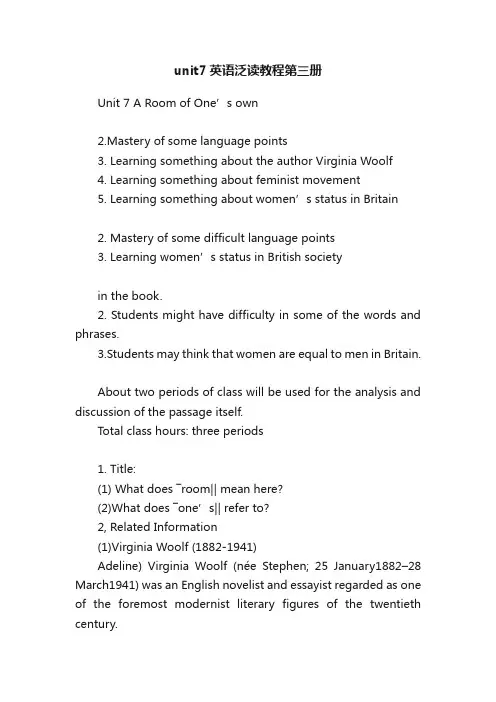
unit7英语泛读教程第三册Unit 7 A Room of One’s own2.Mastery of some language points3. Learning something about the author Virginia Woolf4. Learning something about feminist movement5. Learning something about women’s status in Britain2. Mastery of some difficult language points3. Learning women’s status in British societyin the book.2. Students might have difficulty in some of the words and phrases.3.Students may think that women are equal to men in Britain.About two periods of class will be used for the analysis and discussion of the passage itself.Total class hours: three periods1. Title:(1) What does ―room‖ mean here?(2)What does ―one’s‖ refer to?2, Related Information(1)Virginia Woolf (1882-1941)Adeline) Virginia Woolf (née Stephen; 25 January1882–28 March1941) was an English novelist and essayist regarded as one of the foremost modernist literary figures of the twentieth century.During the interwar period, Woolf was a significant figure in London literary society and a member of the Bloomsbury Group. Her most famous works include the novels Mrs Dalloway (1925), To the Lighthouse (1927), and Orlando (1928), and the book-length essay A Room of One's Own (1929) with its famous dictum, "a woman must have money and a room of her own if she is to write fiction."Personal lifeVirginia Stephen married writer Leonard Woolf in 1912, referring to him during their engagement as a "penniless Jew." The couple shared a close bond, and in 1937Woolf wrote in her diary "Love-making —after 25 years can’t be attained by my unattractive countenance ... you see it is enormous pleasure being wanted, a pleasure that I have never felt." They also collaborated professionally, in 1917 founding the Hogarth Press, which subsequently published most of Woolf's work.[2] The ethos of Bloomsbury discouraged sexual exclusivity, and in 1922, Woolf met Vita Sackville-West. After a tentative start, they began a relationship that lasted through most of the 1920s.[3]In 1928, Woolf presented Sackville-West with Orlando, a fantastical biography in which the eponymous hero's life spans three centuries and both genders. It has been called by Nigel Nicolson, Vita Sackville-West's son, "the longest and most charming love letter in literature."[4] After their affair ended, the two women remained friends until Woolf's death.DeathAfter completing the manuscript of her last (posthumously published) novel Between the Acts, Woolf fell victim to a depression similar to that which she had earlier experienced. The war, the Luftwaffe's destruction of her London homes, as well asthe cool reception given to her biography of her late friend Roger Fry, worsened her condition until she was unable to work.[5] On 28 March1941, rather than having another nervous breakdown, Woolf drowned herself by weighing her pockets with stones and walking into the River Ouse near her home. Her body was not found until April 18. Her husband buried her remains undera tree in the garden of their house in Rodmell, Sussex.(2)William Shakespeare(baptised26 April1564–23 April1616)[a]was an English poet and playwright, widely regarded as the greatest writer in the English language and the world's pre-eminent dramatist.[1] He is often called England's national poet and the "Bard of Avon" (or simply "The Bard"). His surviving works consist of 38 plays,[b] 154 sonnets, two long narrative poems, and several other poems. His plays have been translated into every major living language, and are performed more often than those of any other playwright.[2] Shakespeare was born and raised in Stratford-upon-Avon. At the age of 18 he married Anne Hathaway, who bore him three children: Susanna, and twins Hamnet and Judith. Between 1585 and 1592 he began a successful career in London as an actor, writer, and part owner of the playing company the Lord Chamberlain's Men, later known as the King's Men. He appears to have retired to Stratford around 1613, where he died three years later. Few records of Shakespeare's private life survive, and there has been considerable speculation about such matters as his sexuality, religious beliefs, and whether the works attributed to him were written by others.[3] Shakespeare produced most of his known work between 1590 and 1613. His early plays were mainly comedies and histories, genres he raised to the peak ofsophistication and artistry by the end of the sixteenth century. Next he wrote mainly tragedies until about 1608, including Hamlet, King Lear, and Macbeth, considered some of the finest examples in the English language. In his last phase, he wrote tragicomedies, also known as romances, and collaborated with other playwrights.Many of his plays were published in editions of varying quality and accuracy during his lifetime, and in 1623, two of his former theatrical colleagues published the First Folio, a collected edition of his dramatic works that included all but two of the plays now recognised as Shakespeare's.Shakespeare was a respected poet and playwright in his own day, but his reputation did not rise to its present heights until the nineteenth century. The Romantics, in particular, acclaimed Shakespeare's genius, and the Victorians hero-worshipped Shakespeare with a reverence that George Bernard Shaw called "bardolatry".[4]In the twentieth century, his work was repeatedly adopted and rediscovered by new movements in scholarship and performance. His plays remain highly popular today and are consistently performed and reinterpreted in diverse cultural and political contexts throughout the world.3. Warming-up questionAre there any inequality between men and women in your surroundings? Please give some expels if the answer is yes.4. Text analysisA Room of One’s Own (1929);(now regarded as a classic feminist work)All I could do was to offer you an opinion upon one minor point—a woman must have money and a room of her own if she is to write fiction; and that, as you will see, leaves the greatproblem of the true nature of woman and the true nature of fiction unsolved.(1) Themes, Motifs & Symbols#ThemesThe Importance of MoneyFor the narrator of A Room of One’s Own, money is the primary element that prevents women from having a room of their own, and thus, having money is of the utmost importance. Because women do not have power, their creativity has been systematically stifled throughout the ages. The narrator writes, ―Intellectual freedom depends upon material things. Poetry depends upon intellectual freedom. And women have always been poor, not for two hundred years merely, but from the beginning of time . . .‖ She uses this quotation to explain why so few women have written successful poetry. She believes that the writing of novels lends itself more easily to frequent starts and stops, so women are more likely to write novels than poetry: women must contend with frequent interruptions because they are so often deprived of a room of their own in which to write. Without money, the narrator implies, women will remain in second place to their creative male counterparts. The financial discrepancy between men and women at the time of Woolf’s writing perpetuated the myth that women were less successful writers.The Subjectivity of TruthIn A Room of One’s Own, the narrator argues that even history is subjective. What she seeks is nothin g less than ―the essential oil of truth,‖ but this eludes her, andshe eventually concludes that no such thing exists. The narrator later writes, ―When a subject is highly controversial, onecannot hope to tell the truth. One can only show how one c ame to hold whatever opinion one does hold.‖ To demonstrate the idea that opinion is the only thing that a person can actually ―prove,‖ she fictionalizes her lecture, claiming, ―Fiction is likely to contain more truth than fact.‖ Reality is not objective: rather, it is contingent upon the circumstances of one’s world. This argument complicates her narrative: Woolf forces her reader to question the veracity of everything she has presented as truth so far, and yet she also tells them that the fictional parts of any story contain more essential truth than the factual parts. With this observation she recasts the accepted truths and opinions of countless literary works.#MotifsInterruptionsWhen the narrator is interrupted in A Room of One’s Own, she generally fails to regain her original concentration, suggesting that women without private spaces of their own, free of interruptions, are doomed to difficulty and even failure in their work. While the narrator is describing Oxbridge University in chapter one, her attention is drawn to a cat without a tail. The narrator finds this cat to be out of place, and she uses the sight of this cat to take her text in a different direction. The oddly jarring and incongruous sight of a cat without a tail—which causes the narrator to completely lose her train of thought—is an exercise in allowing the reader to experience what it might feel like to be a woman writer. Although the narrator goes on to make an interesting and valuable point about the atmosphere at her luncheon, she has lost her original point. This shift underscores her claim that women, who so often lack a room of their own and the time to write, cannot compete against the menwho are not forced to struggle for such basic necessities.Gender InequalityThroughout A R oom o f One’s Own, the narrator emphasizes the fact that women are treated unequally in her society and that this is why they have produced less impressive works of writing than men. To illustrate her point, the narrator creates a woman named Judith Shakespeare, the imaginary twin sister of William Shakespeare. The narrator uses Judith to show how society systematically discriminates against women. Judith is just as talented as her brother William, but while his talents are recognized and encouraged by their family and the rest of their society, Judith’s are underestimated and explicitly deemphasized. Judith writes, but she is secretive and ashamed of it. She is engaged at a fairly young age; when she begs not to have to marry, her beloved father beats her. She eventually commits suicide. The narrator invents the tragic figure of Judith to prove that a woman as talented as Shakespeare could never have achieved such success. Talent is an essential component of Shakespeare’s success, but because women are treate d so differently, a female Shakespeare would have fared quite differently even if she’d had as much talent as Shakespeare did.#SymbolsA Room of One’s OwnThe central point of A Room of One’s Own is that every woman needs a room of her own—something men are able to enjoy without question. A room of her own would provide a woman with the time and the space to engage in uninterrupted writing time. During Woolf’s time, women rarely enjoyed these luxuries. They remained elusive to women, and, as a result, their art suffered. But Woolf is concerned with more than just the roomitself. She uses the room as a symbol for many larger issues, such as privacy, leisure time, and financial independence, each of which is an essential component of the countless inequalities between men and women. Woolf predicts that until these inequalities are rectified, women will remain second-class citizens and their literary achievements will also be branded as such. (2) Key ideas of each partPara.1 She tried to find some information about women in history but failed——to little information.Para.2 Contrast:Imaginatively (in fiction) ——very important,, very greatpractically (in historical records as well as in history) ——insignificant Para.3. Since there were few facts about women in history, she suggested to rewrite history.Para.4.She tried to create an imaginary figure who was as brilliant as William Shakespeare, but there was no doubt about the tragic fate about this Judith Para.5-6 Again She emphasized the point that women had no place in history.(3) Summary of A Room of One's OwnThe dramatic setting of A Room of One's Own is that Woolf has been invited to lecture on the topic of Women and Fiction. She advances the thesis that "a woman must have money and a room of her own if she is to write fiction." Her essay is constructed as a partly-fictionalized narrative of the thinking that led her to adopt this thesis. She dramatizes that mental process in the character of an imaginary narrator ("call me Mary Beton, Mary Seton, Mary Carmichael or by any name you please—it is not a matter of any importance") who is in her same position, wrestling with the same topic.The narrator begins her investigation at Oxbridge College,where she reflects on the different educational experiences available to men and women as well as on more material differences in their lives. She then spends a day in the British Library perusing the scholarship on women, all of which has written by men and all of which has been written in anger. Turning to history, she finds so little data about the everyday lives of women that she decides to reconstruct their existence imaginatively. The figure of Judith Shakespeare is generated as an example of the tragic fate a highly intelligent woman would have met with under those circumstances. In light of this background, she considers the achievements of the major women novelists of the nineteenth century and reflects on the importance of tradition to an aspiring writer. A survey of the current state of literature follows, conducted through a reading the first novel of one of the narrator's contemporaries. Woolf closes the essay with anexhortation to her audience of women to take up the tradition that has been so hardly bequeathed to them, and to increase the endowment for their own daughters.5. Key words and expressions(1) avarice(2) memoir(3) anecdote(4) whisk away(5) parish register (6) poach(7) on the sly(8) lust(9) on the track of(10) wizard5. Topic for Discussion(1)Why does Virginia Woolf suggest rewriting history?(2) What does the story of the imagined Shakespeare’s sister signify?(3) Do you agree with Woolf when she says that genius like Shakespeare’s is notborn today among the working class? Explain.6.Exercises about the text7. Reading skills: Reading the Feature Story in a Newspaper8. Fast Reading & Exercises2.Preview Unit 8。